Hunter Labrada's Guide To Post-Workout Nutrition And Supplementation
- Get link
- X
- Other Apps
So you consumed the optimal pre-workout meal, drank a pre-workout drink with an effective formula, and absolutely killed your workout. Now what?
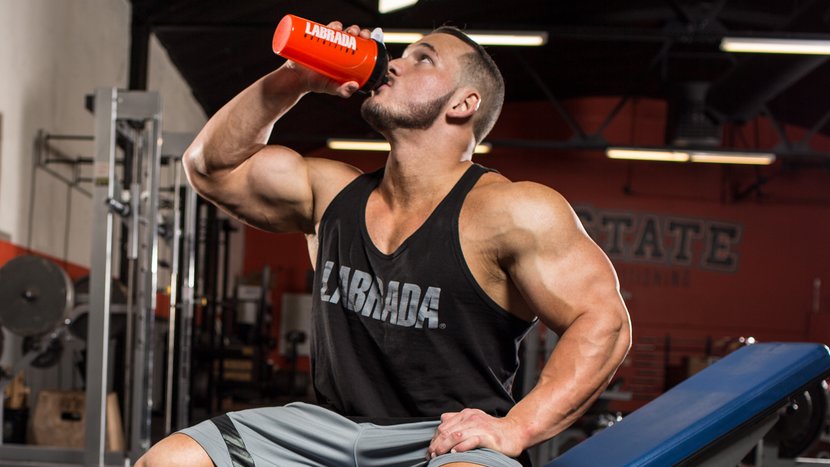
This is the question I get more than any other: "What should I be doing post-workout?" The oversimplified answer: Consume the proper macronutrients and supplements to replenish the energy you used, repair the muscle tissue you broke down, and increase your muscle protein synthesis.
Let's dive into each of these goals in more detail.
Replenishing The Energy Used During Your Training Session
When you perform intense exercise, your body uses glycogen (a long string of glucose molecules) to fuel your body with energy. When your body uses this glycogen, it depletes its stores, which are located primarily in your skeletal muscle tissue and the liver. How much is depleted, you might ask? Research on glycogen usage and depletion has shown that up to 40 percent of your glycogen stores can be depleted during a bout of intense training.[1]
Now that you know just how glycogen-depleted you can make your muscle tissue, let's talk about the best way to replenish the glycogen used during your training session. In order to replenish your glycogen stores, you should consume fast-digesting, high-glycemic carbs immediately following your workout.
The type of carbs I recommend are Karbolyn, which is used in Labrada's ReCharge, or dextrose. I'm not a fan of fructose (fruit sugar) post-workout, because it actually has a lower glycemic index and doesn't give the insulin spike I look for. Simple carbohydrates, like the ones listed above, are not ideal at any other time of day, because they digest so quickly and cause an insulin spike. But those exact qualities make it ideal for post-workout nutrition.
Because Karbolyn and dextrose are simple carbohydrates, your body doesn't have to spend much time breaking them down before absorbing them, giving you the fastest possible replenishment of your muscle glycogen stores and a large insulin spike.
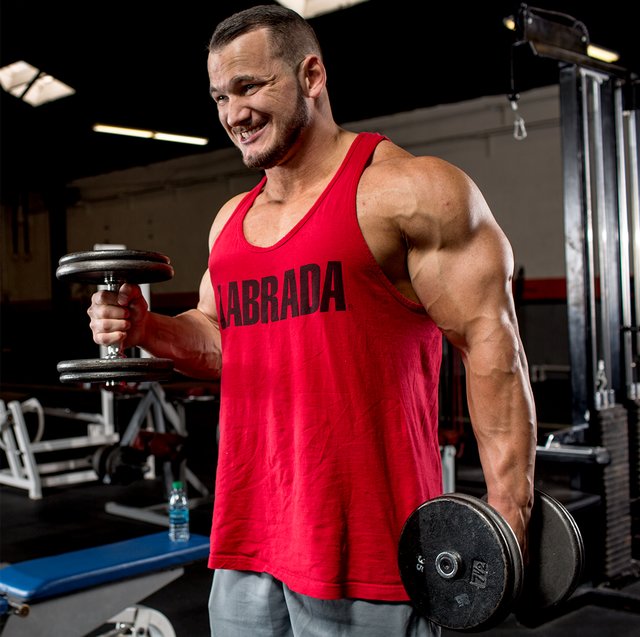
Why is the insulin spike important? Insulin, which is a highly anabolic hormone in the body, regulates your blood sugar by shuttling nutrients (like glucose) to muscles. Once all muscle cells are saturated, your body stores the remaining glucose as fat. So, while insulin spikes during times of the day other than training can lead to unwanted fat storage, the same spike post-workout can jump-start your growth and recovery, ensuring that your muscles' glycogen stores are replenished and your body is primed and ready for its next training session.
Now that you know which carbs to use to replenish your glycogen, how much of them should you consume post-workout? If you read my previous article on pre-workout nutrition and supplementation, you know I'm a big proponent of consuming about 50 percent of your daily carbohydrate intake in your pre-workout meal and your post-workout shake. So, if you consume 300 grams of carbs daily, you'll consume 150 of them before and after training.
Split the 50 percent between your pre-workout meal and post-workout shake. However, if you feel you don't have enough energy while training, consume more of those carbs pre-workout—say, 30 percent—and consume the remaining 20 percent in your post-workout shake. Alternatively, if you have plenty of energy and a good pump while you train, but are dragging and feel flat after your session (a key indicator of glycogen depletion), it might be beneficial to consume a larger portion—say, up to 30 percent—after you train. Personally, I have always done well splitting them right down the middle, doing 25 percent of my daily carb intake before I train and 25 percent after.
Repair The Muscle Tissue You Broke Down
When you train intensely, you cause very small tears, or microtraumas, to your muscle tissue. These microtraumas are what cause the trained muscle to feel sore during the days following a workout. It's when your body repairs these microtraumas that you experience increases in muscle size and strength. There are ways you can help mitigate this breakdown immediately following training to get a jump-start on recovery.
The most important supplement to take post-workout is a quality whey protein. Whey protein is superior to whole-food protein immediately post-workout, for several reasons:
- Whey digests faster than other proteins.
- The amino-acid profile of whey is high in BCAAs.
- Whey contains little to no fat.
- Drinking a shake is quicker and easier than eating a post-workout meal.
By consuming whey protein post-workout, rest assured you have given your muscles exactly what they need to repair the damage caused by your training session. How much whey protein should you consume after a hard training session? Opinions vary, but I recommend consuming 20 percent of your body weight in grams of protein. Simply multiply your body weight in pounds by 0.2. For example, I weigh 240 pounds, so I would consume 48 grams of whey protein (240 x 0.2 = 48). If you're a 120-pounder, consume 24 grams of whey protein (120 x 0.2 = 24) immediately after training.
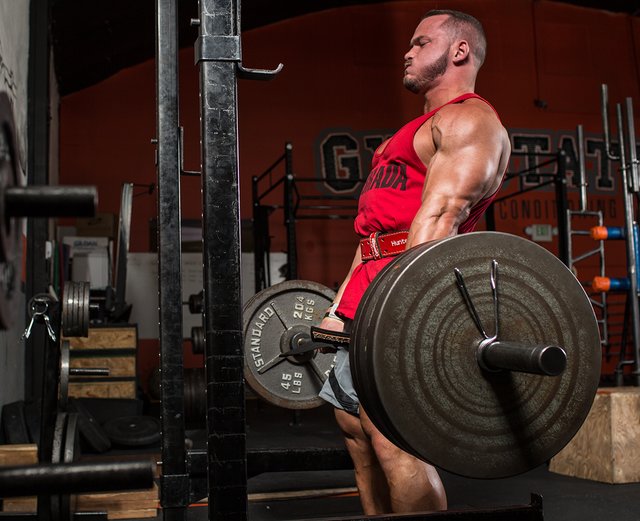
Another ingredient that can aid in recovery and help repair the damage caused by your training is glutamine. This amino acid will benefit you in two areas: immune function and carbohydrate uptake. When you train intensely, your body's circulating levels (plasma levels) of glutamine decrease. This is because the demand from your liver, kidneys, intestinal pathway, and immune system exceeds the supply present in your muscles and available from your pre-workout meal.
By supplementing with glutamine, you can replace these stores and subsequently allow your immune system and other systems that rely on glutamine to function optimally.[2] Supporting your immune system is a critical benefit of glutamine, since a sickness that keeps you from training and eating can be detrimental to your progress.
In addition to supporting proper immune function, research has shown that supplementing with glutamine actually increases whole-body carbohydrate storage and muscle-glycogen resynthesis. One study found "that whole-body non-oxidative glucose disposal was increased by 25 percent after consumption of glutamine in addition to the glucose polymer."[3] Put simply, the addition of glutamine to the simple carbohydrates and whey protein may further increase your body's ability to shuttle nutrients to your muscles, which in turn can lead to faster recovery and better results.
Consume at least 10 grams of glutamine immediately following training, and one other time during the day. This will allow you to fully reap the benefits. I like to kill two birds with one stone and use Labrada's BCAA power, since it contains glutamine in addition to BCAAs.
Increase Muscle Protein Synthesis
The last and perhaps most important thing your post-workout nutrition and supplementation should do is increase your body's muscle protein synthesis (MPS). A signaling protein called mTOR (mammalian target of rapamycin) signals MPS to occur. When mTOR is activated, it causes cells to increase MPS, which leads to muscle growth.
Now that you know that, I'm sure your wondering, "Well, how do I activate the mTOR pathway in my body?" The answer is fairly simple: mTOR is activated by multiple factors, with the main ones being amino acids (primarily leucine), insulin, and exercise.[4]
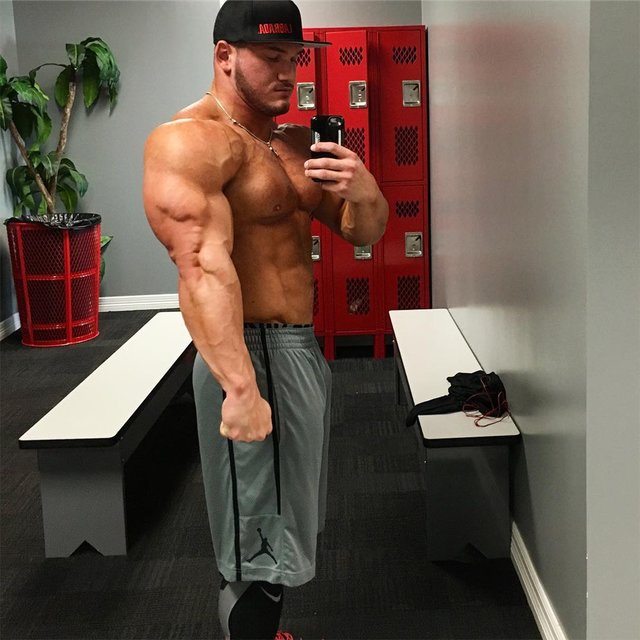
Armed with that knowledge, you can begin to see the one thing you haven't gotten in adequate amounts from your simple carbohydrates, whey protein shake, and intense training session: branched-chain amino acids (BCAAs). While whey protein has a solid amino-acid profile for repairing muscle tissue, you may not be getting enough leucine to adequately stimulate mTOR.
That's where BCAAs come into play. BCAAs have a high concentration of the amino acid leucine, which, as previously mentioned, is a critical stimulator of the mTOR pathway, and subsequently MPS. Most BCAA supplements provide BCAAs in a 2:1:1 ratio of leucine to valine to isoleucine. In order to get the minimum 2.5 grams of leucine that research suggests activates the mTOR pathway, you should consume at least 5 grams of BCAAs immediately post-workout (if they are 2:1:1 ratio).
As a side note, when purchasing BCAAs, make sure to choose a BCAA product that contains fermented amino acids. Fermented BCAAs are synthesized from cultures in a lab, ensuring there is nothing but quality BCAAs in the supplement.
Bringing It All Together
By consuming the proper amounts and types of carbs, protein, and supplements, you can replenish the energy used during training, repair the muscle tissue you broke down, and increase muscle protein synthesis. All of these things should lead to increased muscle growth, strength, and recovery.
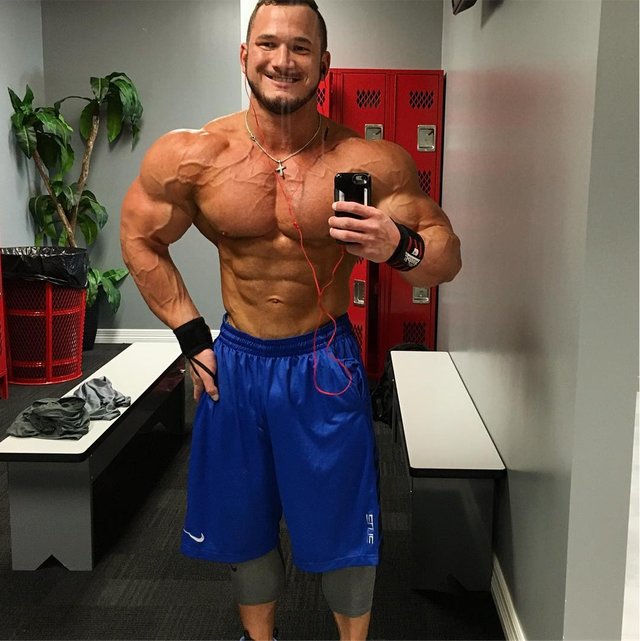
To recap, remember that your post-workout should contain:
- 25% of your daily carb intake from Karbolyn or dextrose
- Whey protein (body weight in pounds by 0.2)
- 10 grams of glutamine
- At least 5 grams of 2:1:1 branched-chain amino acids
As always, if you have any questions regarding this article, please do not hesitate to leave a comment or send me a message. If you haven't been supplementing in this manner following your workouts, definitely give it a try, as I can guarantee the results will speak for themselves!
- Get link
- X
- Other Apps



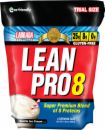

Comments
Post a Comment